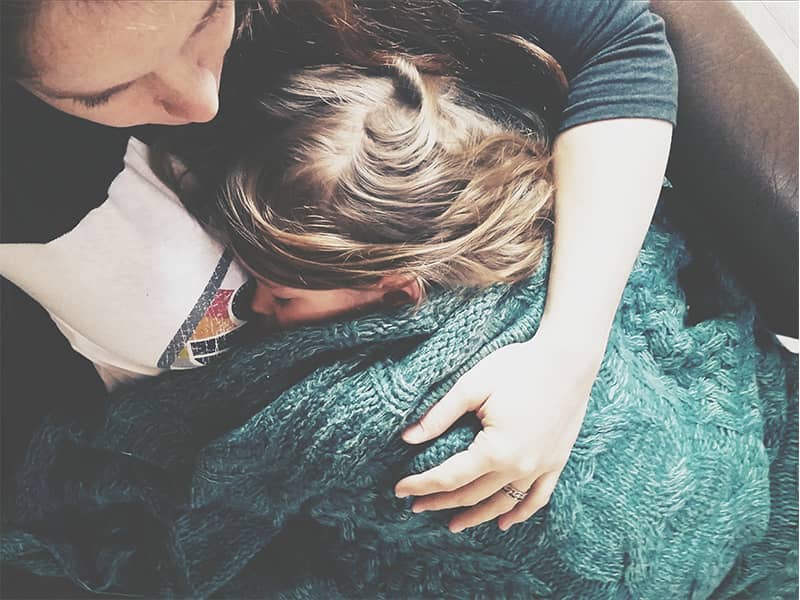Every parent knows the feeling of relief when a healthy baby has been safely delivered, and my daughter felt the same when her youngest son was born. But she was also stunned to see that his upper back, chest, left shoulder and arm were covered with large, hairy patches of reddish-brown welts. Though the doctors said that Dylan was otherwise healthy and normal, they warned that these blotches were likely to turn cancerous. In fact, the chance of melanoma was so high that surgery, skin grafts, and other risky, time-consuming procedures might be necessary. They said nothing about the social stigma of disfigurement-the stares, the questions, the cruel teasing of peers-but they didn't have to. My daughter and her husband were already thinking of that.
In short, though proud and happy-and comforted by the baby's sunny smile that lit up his whole face-his parents were worried about the future, and emotionally torn. Why our baby?
Statistically speaking, only a handful of us will ever know the emotional pain of disfigurement and its related ills. Still, the lives of those with these difficulties carry a meaning that is greater than the sum of their suffering. Simply put, even if they are denied the worldly happiness bought by popularity, attractiveness, or personal charisma, they can radiate a deeper, more lasting happiness-the happiness that comes from loving and being loved. This happiness is neither based on "quality of life" nor limited by circumstances or genetic makeup. In its light even the strongest feelings of self-hatred yield. In it, even the most wretched person can find his God-given purpose and the deep satisfaction that comes from seeking to fulfill it.
My dear children,
Mama and I congratulate you on the birth of your Dylan, our twenty-fourth grandchild. What a joy it was to hold him yesterday-a long-awaited moment for us.
Like all our other grandchildren, Dylan will always have a special place in our hearts and prayers. Yesterday I felt your great joy over him, but also your pain. This joy and pain is ours, too. Yes, it was a shock to see all the black marks on his little body, and only God knows what lies ahead for this courageous young fighter.
All parents hope for healthy children. But in my lifetime I've learned that a healthy body isn't necessarily the best equipped for life. Children with medical difficulties like your Dylan's will have a rough time during their growing-up years. But later on, when he gets to be my age or older, he'll look back at his childhood and marvel at God's wisdom in placing this burden on him. He will see how it prepared him for the difficulties of adult life.
Having had a hard childhood myself, I can tell you that the thing that most helped me through trying times was humor. The best thing you as parents can do for Dylan is to help him develop his sense of humor. Never stop working on that. Anyone who can face hardships with true humor will be the envy of many people.
What I'm trying to say to you, my beloved children, is that God knew exactly what he was doing when he created Dylan. Because of this, the prospects for his future shine brightly, at least in my eyes. I wish you the courage to stand by him when things get tough. Remind him that "when the going gets tough, the tough get going." And when he is old enough to understand, tell him that he has grandparents who have loved him from the start and will never stop loving and praying for him.
Wishing you God's closeness,
Your Papa and Mama
Since I wrote those words, I have become even more convinced that humor-true humor, the kind that only a free heart can know-is a unique gift from God that can give people the strength to escape from their hells. Dylan may always be disfigured. But I believe he will also learn compassion for others who are "different"-and will spend more time laughing than most. In other words, as I wrote to my daughter, I am sure that her son's condition will turn out to be a blessing from God.

